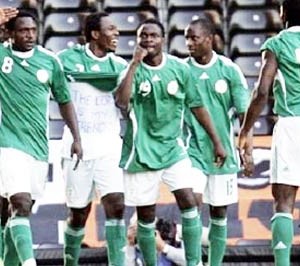In 9 months, Malawi will give birth to its next president. In the upcoming May 2014 tripartite elections, Malawians will go to the polls to vote for ward councillors, members of parliament and the state president in what is likely “to be the tightest electoral contest since its [Malawi’s] return to multiparty democracy in 1993“.
We agree with Malawian academic, writer and communications scholar Kainja that the line up for 2014 is set:
Smaller parties may yet feature their own presidential candidates and independent candidates may yet emerge but it is safe to say that baring any form of incapacitation, next year today one the following people will be a president of Malawi: Joyce Banda, Peter Muntharika [sic], Atupele Muluzi or [Lazarus] Chakwera.
In short (for further analysis, read Kainja’s reflections and he is currently writing on a weekly basis for Malawi’s main online news source Nyasa Times as well as Malawian BBC correspondent Raphael Tenthani’s Muckracking on Sunday column),
- Joyce Banda: current president of Malawi under the banner of the People’s Party; she took over from Bingu wa Mutharika who died in office in April 2011.
- Peter Mutharika: the late president’s brother at the helm of the Democratic Progressive Party, Professor of International and Comparative Law Emeritus (Washington University).
- Atupele Muluzi: the son of Bakili Muluzi, Malawi’s first president to be voted in during multiparty democracy in 1994, running on the United Democratic Front’s ticket.
- Lazarus Chakwera: former president of Malawi Assemblies of God and presidential candidate for the Malawi Congress Party, the party that ruled the nation from 1964 to 1994.
On Sunday (8 September 2013), presidential aspirant Chakwera reportedly “faulted government policy of allowing mining investors into the country anyhow” on the basis that this “does not benefit people as there are no mechanisms to monitor the mines”. He made these comments during a rally in Malawi’s northern region of Karonga which is home to the largest mining project in the country.
Kayelekera uranium mining project is wholly owned by Paladin Africa Limited which is a subsidiary of Australian-listed Paladin Energy Limited. The Government of Malawi has a 15% stake in Paladin Africa. The mining company has come under attack fromtraditional leaders and civil society recently on the grounds that the country is losing out because of tax incentives given to the company (see recent Action Aid report with data on Malawi here) and the lives of people in surrounding communities have not improved as much as expected.
As a result, there have been some calls for the government to renegotiate the Mining Development Agreement with Paladin. The government has responded ambiguouslyto the demand by citizens for renegotiation, but Greg Walker, Paladin Africa’s General Manager for International Affairs clearly asserts that the company will not enter into renegotiations at any stage.
This explains why the Malawian government has enlisted the help of pro bono lawyersin ongoing negotiations with Globe Metals and Mining about the Mining Development Agreement for the Kanyika Niobium Project. The government has also established a relationship with the University of Dundee’s Centre for Energy, Petroleum and Mineral Law of Policy to provide technical assistance in preventing “the theft of our minerals“, in the words of Malawi’s Minister of Mining John Bande.
As the presidential candidates begin to outline their policies and stance on key national issues, the extractive industry must be high on their agenda. Many questions need to be asked of the leaders of Malawi’s four largest political parties, however, concentrating only on particular issues such as the Kayelekera uranium project and current dispute with Tanzania over Lake Malawi will detract from the broader discussion we need to have about regulation and legislation of Malawi’s extractive sector for the benefit of not only companies but the country and surrounding communities now and in the future.
How will the post-May-2014 government use the money received from our exported non-renewable resources?
Like Kainja, we demand substance from the presidential candidates.

.jpeg&w=60&q=100&h=60)




.jpeg&w=60&q=100&h=60)





